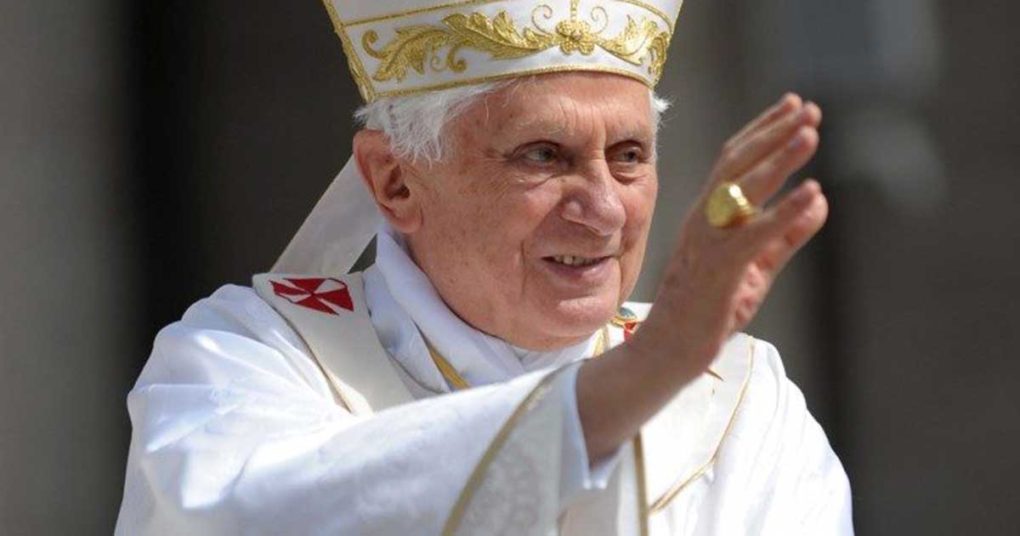Dear Brothers and Sisters,
On this day, marked by the austere symbol of ashes, we enter the Season of Lent, beginning a spiritual journey that prepares us for celebrating worthily the Easter Mysteries. The blessed ashes imposed upon our forehead are a sign that reminds us of our condition as creatures, that invites us to repent, and to intensify our commitment to convert, to follow the Lord ever more closely.
Lent is a journey, it means accompanying Jesus who goes up to Jerusalem, the place of the fulfilment of his mystery of Passion, death and Resurrection; it reminds us that Christian life is a “way” to take, not so much consistent with a law to observe as with the very Person of Christ, to encounter, to welcome, to follow.
Indeed, Jesus says to us: “If any man would come after me, let him deny himself and take up his cross daily and follow me” (Lk 9:23). In other words he tells us that in order to attain, with him, the light and joy of the Resurrection, the victory of life, of love and of goodness, we too must take up our daily cross, as a beautiful passage from the Imitation of Christ urges us: “Take up your cross, therefore, and follow Jesus, and you shall enter eternal life. He himself opened the way before you in carrying his Cross (Jn 19:17), and upon it he died for you, that you too, might take up your cross and long to die upon it. If you die with him, you shall also live with him, and if you share his suffering, you shall also share his glory” (Book 2, chapter 12, n. 2).
In Holy Mass of the First Sunday of Lent we shall pray: “Father, through our observance of Lent, sign of the sacrament of our conversion, help us to understand the meaning of your Son’s death and Resurrection, and teach us to reflect it in our lives” (Opening Prayer).
This is an invocation that we address to God because we know that he alone can convert our hearts. And it is above all in the Liturgy, by participating in the holy mysteries, that we are led to make this journey with the Lord; it means learning at the school of Jesus, reviewing the events that brought salvation to us but not as a mere commemoration, a remembrance of past events. In the liturgical actions Christ makes himself present through the power of the Holy Spirit and these saving events become real.
There is a keyword that recurs frequently in the Liturgy to indicate this: the word “today”; and it should be understood in its original and practical, rather than metaphorical, sense. Today God reveals his law and we are granted to choose today between good and evil, between life and death (cf. Dt 30:19). Today “the Kingdom of God is at hand; repent and believe in the Gospel” (Mk 1:15). Today Christ died on Calvary and rose from the dead; he ascended into Heaven and is seated at the right hand of the Father; today the Holy Spirit is given to us; today is a favourable time.
From Pope Benedict XVI’s General Audience, 9 March 2011

